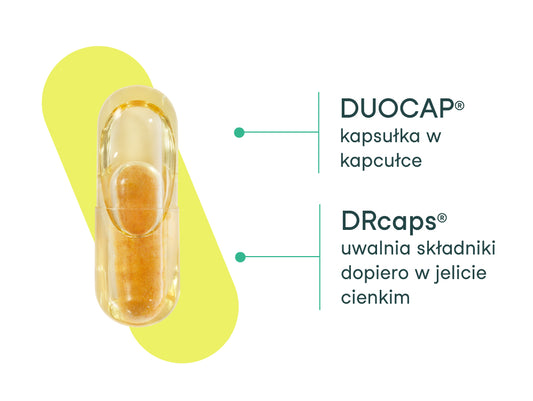
Not only mothers of newborns and infants, but also women who are expecting a child complain about insomnia. This most often happens in the first and third trimester of pregnancy. Find out how to improve your sleep quality.
A study conducted in 2018 shows that over 44% of women experience trouble falling asleep and/or waking up frequently in the first three months of pregnancy . According to the results obtained by scientists, the risk of insomnia is greater among women who have already struggled with this problem. Over 63% of women experience it in the third trimester 1 .
Why do you have trouble sleeping during pregnancy?
Of course, the reasons why women at the beginning of pregnancy, as well as those in an advanced stage, cannot sleep, change. Some of it, however, remains the same: stress, fear for your own health and that of your child , fear of the future (and childbirth) and the fear of "if I can cope." Plus, of course, ongoing pains and everyday hassles. In addition, raging hormones - progesterone at the beginning of pregnancy makes women feel sleepy during the day, and napping during the day can make it difficult to fall asleep in the evening. Plus a lot of health ailments - from heartburn, nausea, back pain and ringing in the ears, through constipation and almost constant pressure on the bladder, to varicose veins and hemorrhoids. And at the end - also difficulties in finding a comfortable sleeping position .
Pregnancy is a time when even supplementation needs to be consulted with a doctor, so the use of any over-the-counter sleep medications will also require such advice, and the patient will probably hear "no". The same applies to herbs. Therefore, it is worth trying natural methods and introducing rituals that will help you fall asleep and improve the quality of sleep.
Sleep hygiene during pregnancy.
These are just a few rules that are worth implementing to ensure the quality of your sleep. Seemingly obvious, but sometimes we don't use them. First of all: the only place to sleep is in bed , and it is best to go to bed at the same time every day . The bedroom should be well ventilated, the lights should be turned off, and the bed should be well adapted to your needs - i.e. with a suitably hard (or soft, depending on your preferences) mattress, nice-to-touch bedding, comfortable pillows and a duvet adjusted to the season. At least an hour before going to bed, it is worth limiting the amount of fluids you drink , because frequent visits to the toilet are one of the common reasons for waking up at night. It is worth remembering that all monitors and screens (tablets, phones, computers) emit light that disrupts the circadian rhythm , which is one of the causes of insomnia. Therefore, instead of watching a series on a tablet, it is worth trying reading a book or a magazine.
Supplements to help deal with insomnia during pregnancy.
We have already written about the fact that almost everything should be consulted with a doctor during pregnancy. However, among dietary supplements that have a proven beneficial effect on pregnant women, Omega-3 acids help ensure sleep. 2.3 and vitamin B12 4.5 , which supports the secretion of melatonin and regulates the circadian rhythm . Pregnant women whose sleep is disturbed by restless legs syndrome 6 should also pay attention to whether they supplement with the right form of folic acid (read more about folic acid here ). Iron deficiency may also cause this ailment, but before you start taking this mineral, you must perform appropriate tests and consult a doctor. You can read why it is not worth supplementing iron prophylactically in this article .
Relaxation during pregnancy.
Many studies show that various forms of meditation are helpful in combating insomnia. A study published in 2015 in the journal "Obstetric Medicine" shows that meditation is also an excellent remedy for insomnia during pregnancy 7 . Other options – breathing regulation and Jacobson training, also called progressive muscle relaxation (PRM). They are a lifesaver for many people in the fight against insomnia. PRM assumes that the basis of difficult and negative emotional states is neuromuscular tension. Therefore, in this method, individual muscle groups are tensed and relaxed to achieve a relaxation effect.
Physical activity during pregnancy and sleep.
There is no need to convince anyone that exercise ( including daily walks! ) has a beneficial effect on health. Exercise during the day, even mild exercise, not only improves your overall fitness and positively affects the quality of your sleep at night , but also reduces the risk of diabetes, reduces back pain and improves heart function. Pregnancy is not a reason to give up exercise, it is only worth adjusting its intensity to the capabilities of your body and health condition.
Bibliography:
- RM Román-Gálvez et all, Factors associated with insomnia in pregnancy: A prospective Cohort Study, EJOG, Published:December 07, 2017.
- Gross D. et al., “Dietary fish intake and sleep quality: a population-based study.” Sleep Med., vol. 17, pg. 126-128, 2016
- Montgomery P. et al., “Fatty acids and sleep in UK children: objective and pilot objective sleep results from the DOLAB study – a randomized controlled trial.” J Sleep Res., vol. 23, no. 4, pg. 364-388, 2014
- Honma K. et al., “Effects of vitamin B12 on plasma melatonin rhythm in humans: increased light sensitivity phase-advances the circadian clock?” Experientia, 1992
- Mayer G., Kröger M., Meier-Ewert K., “Effects of vitamin B12 on performance and circadian rhythm in normal subjects”, Neuropsychopharmacology, 1996.
- Hashmi AM, Bhatia SK, Bhatia SK, Khawaja IS. Insomnia during pregnancy: Diagnosis and Rational Interventions. Pak J Med Sci. 2016 Jul-Aug;32(4):1030-7.
- Reichner CA. Insomnia and sleep deficiency in pregnancy. Obstet Med. 2015 Dec;8(4):168-71. doi: 10.1177/1753495X15600572.


What makes our capsule stand out?
The nikalab capsule impresses not only with its appearance, but also with its operation. We used two innovative...








